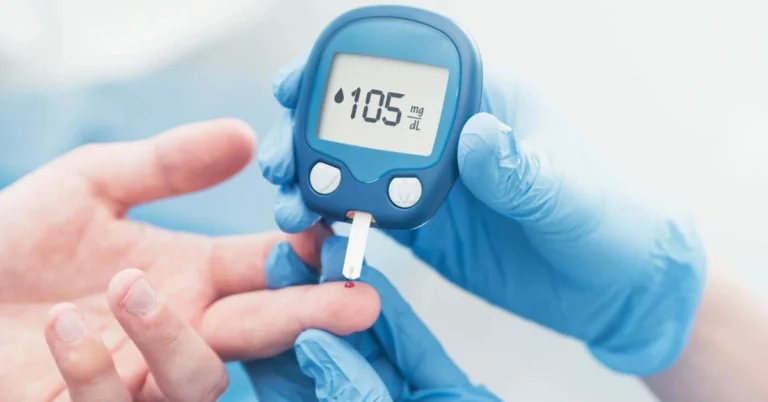Postpartum Anxiety: 7 Signs You’re Overlooking (Not Just Baby Blues)
Having a baby brings joy, exhaustion, and a rollercoaster of emotions. It’s normal to feel weepy, overwhelmed, or irritable in the first few weeks. However, if that worry turns into constant dread or racing thoughts, it might not just be the “baby blues.”
It could be postpartum anxiety, a condition that affects 1 in 5 new mothers, according to the American Pregnancy Association. Yet it often goes undiagnosed—because the signs are subtle, and sometimes mistaken for normal new-mom stress.
Postpartum anxiety, unlike postpartum depression, doesn’t always manifest as sadness, according to Dr. Sarah Allen, PhD, a clinical psychologist specializing in maternal mental health. Instead, it manifests as restlessness, obsessive thoughts, or a constant sense of being on edge.
Discover seven commonly overlooked signs of postpartum anxiety and learn how to find peace and clarity during this transformative phase of your new motherhood journey.
What Is Postpartum Anxiety?
Postpartum anxiety is a clinical anxiety disorder that typically emerges within the first three months after childbirth, although it can occur anytime during the first year. It manifests as excessive worry that significantly interferes with daily life, often centered around your baby’s safety, feeding, or development.
Postpartum anxiety differs from postpartum depression, although the two conditions can overlap. Unlike the temporary “baby blues,” which typically resolve within 2–3 weeks, postpartum anxiety persists and worsens.
7 Overlooked Signs You Might Have Postpartum Anxiety
1. Constant “What If” Thinking
Your brain feels like a broken record of worst-case scenarios: What if I drop the baby? What if they stop breathing at night? This isn’t normal new-parent vigilance—it’s rumination, a hallmark of anxiety.
2. Difficulty Sleeping—Even When Baby Sleeps
You finally get a break, but you lie awake, heart pounding, worrying. According to the NIH, insomnia or disrupted sleep is common in postpartum anxiety—even when exhaustion should knock you out.
3. Racing Heart or Shortness of Breath
Physical symptoms like a racing pulse, tight chest, or dizziness can signal panic or anxiety attacks. These are often misattributed to hormonal shifts or lack of sleep.
4. Irritability or Snapping at Loved Ones
While postpartum depression is linked to sadness, postpartum anxiety often shows up as agitation, anger, or tension, especially toward a partner or caregivers.
5. Avoiding Certain Activities
You might skip outings or refuse to let others hold the baby—not because you don’t trust them, but because your mind spins with fear of what might happen.
6. Intrusive or Disturbing Thoughts
Some mothers experience frightening mental images, such as dropping the baby, harming it, or something terrible happening. These intrusive thoughts can be shameful, but they are merely symptoms, not a reflection of your character.
“Many women think having scary thoughts means they’re a bad mother,” explains Dr. Jessica Zucker, psychologist and founder of the #IMAMA campaign. “But it’s actually your anxious brain in overdrive, trying to protect what you love most.”
7. Perfectionism or Obsessive Control
You might feel compelled to micromanage every aspect, from folding the diaper to administering the bottle, because it seems like the only way to ensure safety. This excessive control is anxiety’s attempt to impose order.
What the Research Shows
A study published in JAMA Psychiatry in 2021 revealed that 17% of postpartum women experience significant anxiety symptoms, which can sometimes occur without concurrent depression. This makes it challenging to detect these symptoms.
Left untreated, postpartum anxiety can increase the risk of:
- Relationship strain
- Feeding issues (breastfeeding or bottle)
- Maternal burnout
- Child development delays due to reduced emotional bonding
Early detection and care are crucial.
Why It’s Often Missed
- Stigma: Moms are told to “enjoy every moment,” making it harder to admit to negative feelings.
- Lack of screening: Postpartum anxiety isn’t routinely screened at OB follow-ups the way depression is.
- Overlap with typical stress: Newborn life is chaotic—so many symptoms (like fatigue, worry, and restlessness) get normalized.
What You Can Do: Tips for Coping and Healing
1. Start With a Postpartum Mental Health Check-In
Use screening tools like the Edinburgh Postnatal Depression Scale (EPDS) and ask your OB or pediatrician about anxiety-specific options.
2. Talk to a Therapist
Therapists trained in perinatal mental health can help. Look for providers certified through Postpartum Support International (PSI).
3. Try Grounding Breathwork
Breathing techniques such as box breathing or 4-7-8 breathing can activate your parasympathetic nervous system and calm anxiety.
4. Lean Into Support (Even if it Feels Hard)
Ask for help with meals, baby care, or even 20 minutes of alone time. Consider joining a local or virtual postpartum group to connect with others who understand.
5. Consider Medication
If symptoms are severe, SSRIs (like sertraline) are commonly prescribed and considered safe for breastfeeding. Always consult your healthcare provider.
Postpartum anxiety is real, common, and treatable. You’re not alone in experiencing it. Don’t be afraid to seek help and support. Recognizing the signs early on can help you reclaim your sense of calm, confidence, and joy in motherhood.
“Being a good mom doesn’t mean being fearless—it means knowing when to ask for help,” says Dr. Allen.
Check out the healthlynic ✔️approved range of products for Weight Loss, Improve metabolism and much more!







